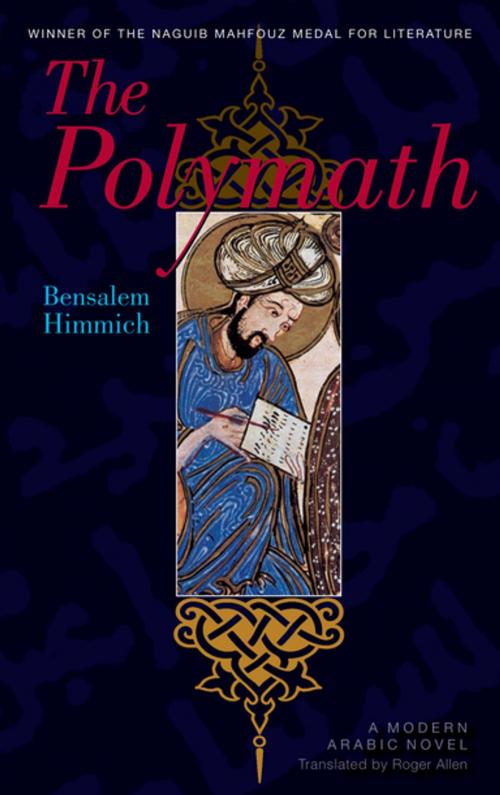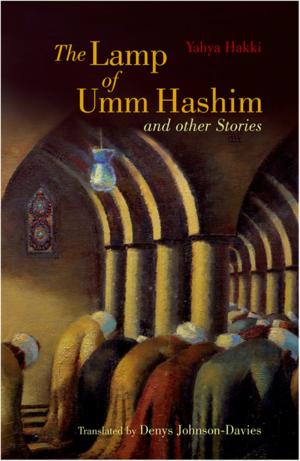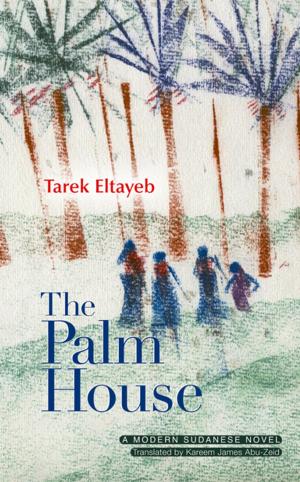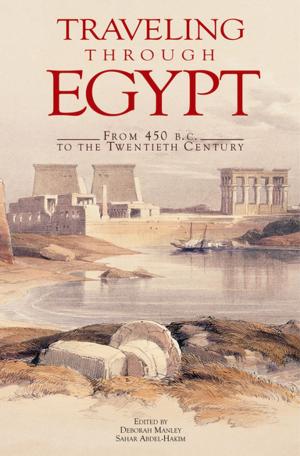| Author: | Bensalem Himmich | ISBN: | 9781617972010 |
| Publisher: | The American University in Cairo Press | Publication: | March 1, 2009 |
| Imprint: | The American University in Cairo Press | Language: | English |
| Author: | Bensalem Himmich |
| ISBN: | 9781617972010 |
| Publisher: | The American University in Cairo Press |
| Publication: | March 1, 2009 |
| Imprint: | The American University in Cairo Press |
| Language: | English |
This award-winning historical novel deals with the stormy life of the outstanding Arab philosopher Ibn Khaldun, using historical sources, and particularly material from the writer's works, to construct the personal and intellectual universe of a fourteenth-century genius. The dominant concern of the novel the uneasy relationship between intellectuals and political power, between scholars and authority addresses our times through the transparent veil of history. In the first part of the novel, we are introduced to the mind of Ibn Khaldun as he dictates his work to his scribe and interlocutor. The second part delves into the heart of the man and his retrieval of a measure of happiness and affection in a remarriage, after the drowning of his first wife and their children at sea. Finally we see Ibn Khaldun as a man of action, trying to minimize the imminent horrors of invading armies and averting the sack of Damascus by Tamerlane, only to spend his last years lonely and destitute, having been fired from his post as qadi, his wife having gone to Morocco, and his attempts at saving the political situation having come to nil. "The elusive simplicity and fluency of style manage to entertain and instruct at once. We learn as we read about Ibn Khaldun: his insights into history and historiography, his views of the rise and fall of civilizations, the principles of his sociological thinking, along with intimate aspects of his life, including his tragic losses and his attitude toward women. We also learn of his response to the major crisis of his time, the Tatar invasion of the Mashriq. In short, Ibn Khaldun, the distant and formidable figure, is humanized thanks to this novel." Naguib Mahfouz Medal Award Committee
This award-winning historical novel deals with the stormy life of the outstanding Arab philosopher Ibn Khaldun, using historical sources, and particularly material from the writer's works, to construct the personal and intellectual universe of a fourteenth-century genius. The dominant concern of the novel the uneasy relationship between intellectuals and political power, between scholars and authority addresses our times through the transparent veil of history. In the first part of the novel, we are introduced to the mind of Ibn Khaldun as he dictates his work to his scribe and interlocutor. The second part delves into the heart of the man and his retrieval of a measure of happiness and affection in a remarriage, after the drowning of his first wife and their children at sea. Finally we see Ibn Khaldun as a man of action, trying to minimize the imminent horrors of invading armies and averting the sack of Damascus by Tamerlane, only to spend his last years lonely and destitute, having been fired from his post as qadi, his wife having gone to Morocco, and his attempts at saving the political situation having come to nil. "The elusive simplicity and fluency of style manage to entertain and instruct at once. We learn as we read about Ibn Khaldun: his insights into history and historiography, his views of the rise and fall of civilizations, the principles of his sociological thinking, along with intimate aspects of his life, including his tragic losses and his attitude toward women. We also learn of his response to the major crisis of his time, the Tatar invasion of the Mashriq. In short, Ibn Khaldun, the distant and formidable figure, is humanized thanks to this novel." Naguib Mahfouz Medal Award Committee















